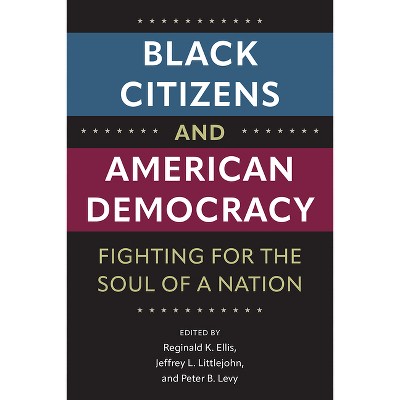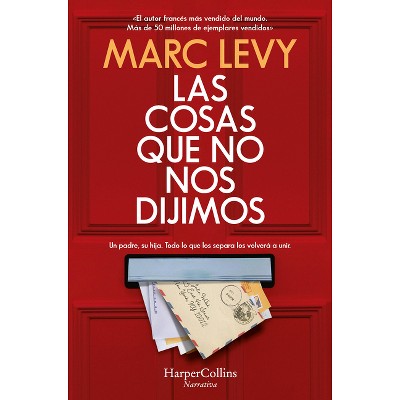Sponsored

A Room Where the Star-Spangled Banner Cannot Be Heard - by Hideo Levy (Hardcover)
In Stock
Sponsored
About this item
Highlights
- Set against the political and social upheavals of the 1960s, A Room Where the Star-Spangled Banner Cannot Be Heard tells the story of Ben Isaac, a blond-haired, blue-eyed American youth living with his father at the American consulate in Yokohama.
- About the Author: Levy Hideo is the pen name of Ian Hideo Levy.
- 160 Pages
- Fiction + Literature Genres, Short Stories (single author)
Description
About the Book
"Originally published in Japan in 1992 by Kodansha, Tokyo"--T.p. verso.Book Synopsis
Set against the political and social upheavals of the 1960s, A Room Where the Star-Spangled Banner Cannot Be Heard tells the story of Ben Isaac, a blond-haired, blue-eyed American youth living with his father at the American consulate in Yokohama. Chafing against his father's strict authority and the trappings of an America culture that has grown increasingly remote, Ben flees home to live with Ando, his Japanese friend. Refusing to speak English with Ben, Ando shows the young American the way to Shinjuku, the epicenter of Japan's countercultural movement and the closest Ben has ever felt to home.
From the vantage point of a privileged and alienated "outsider" (gaijin), Levy's narrative, which echoes events in his own life, beautifully captures a heady, eventful moment in Japanese history. It also richly renders the universal struggle to grasp the full contours of one's identity. Wandering the streets of Shinjuku, Ben can barely decipher the signs around him or make sense of the sounds reaching his ears. Eventually, the symbols and sensations take root, and he becomes one with Japanese language and culture. Through his explorations, Ben breaks free from English and the constraints of being a gaijin. Levy's coming-of-age novel is an eloquent elegy to a lost time.Review Quotes
though this was Levy's first novel, he already had a firm grasp of the novelist's art--David Cozy "Japan Times"
Praise for Levy Hideo: Have we failed to catch the calm but earnest tone that echoes like music through Levy Hideo's prose? With his unique literary voice, this writer clearly represents a new kind of novelist for Japanese literature. As a superior symbol of mutual understanding between two languages and two nations, this accomplishment surely rivals the work of Masao Miyoshi.--Oe Kenzaburo "Asahi Shimbun"
A Room Where the Star-Spangled Banner Cannot Be Heard opens up a new frontier in contemporary Japanese exophonic literature for readers in the West. It demystifies the linkage, dear to the Japanese, of a nation to its language. Levy Hideo's moving exploration of the multilingual, transcultural experiences of the young Ben tells the timeless tale of a boy coming of age in the context of a globalizing world, in which boundaries of language, nationality, and home are blurred.--Faye Yuan Kleeman, University of Colorado, Boulder
An engaging coming-of-age novel that resonates with Nobel Prize winner Oe Kenzaburo's A Personal Matter in its exploration of the complexities of sexual identity and the longing for cultural hybridity. Christopher D. Scott's conscientious translation evokes the grittiness of his young protagonist's quest yet also the compassion and tenderness of Levy Hideo's novel.--Ann Sherif, author of Japan's Cold War: Media, Literature, and the Law
Discovering this book is like meeting a fascinating person. Never before and never since have I encountered such a magical book. As a freshly peeled fruit, the language's flavor is raw and alive: ripe with intellect and replete with seeds. Seventeen-year-old Ben Isaac escapes from the confines of the American consulate in Yokohama where his father works and slips into the urban jungle of civilization called Tokyo. The characters written on the signs around him--some readable, some not--shine with a mysterious appeal for Ben, luring him into the city. The deeper he goes, the narrower the rooms and alleyways become, in inverse proportion to the world of the protagonist's memories, which come alive and spread outward to China, America, and the past his parents' generation lived through. Full of intense longing and pointed social critique, this is a tale that crosses many borders.--Tawada Yoko, author of The Naked Eye
About the Author
Levy Hideo is the pen name of Ian Hideo Levy. He is the first Westerner to become a novelist in Japanese. Born in 1950 to a Jewish father and a Polish mother, he spent his childhood in Taiwan and Hong Kong. He taught Japanese literature at Princeton and Stanford, and received a National Book Award for his translations from the ancient poetry anthology, Man'yoshu (The Ten Thousand Leaves). Since moving to Tokyo in 1990, he has published more than a dozen volumes of fiction and nonfiction spanning America, Japan and China. The winner of numerous Japanese literary and cultural awards, including the prestigious Osaragi Prize, he has become a major international voice in contemporary Japanese literature.
Christopher D. Scott was born in the United States but attended high school in Japan. He received his B.A. from Princeton University and his Ph.D. from Stanford University.Shipping details
Return details
Trending Literary Fiction



Discover more options








